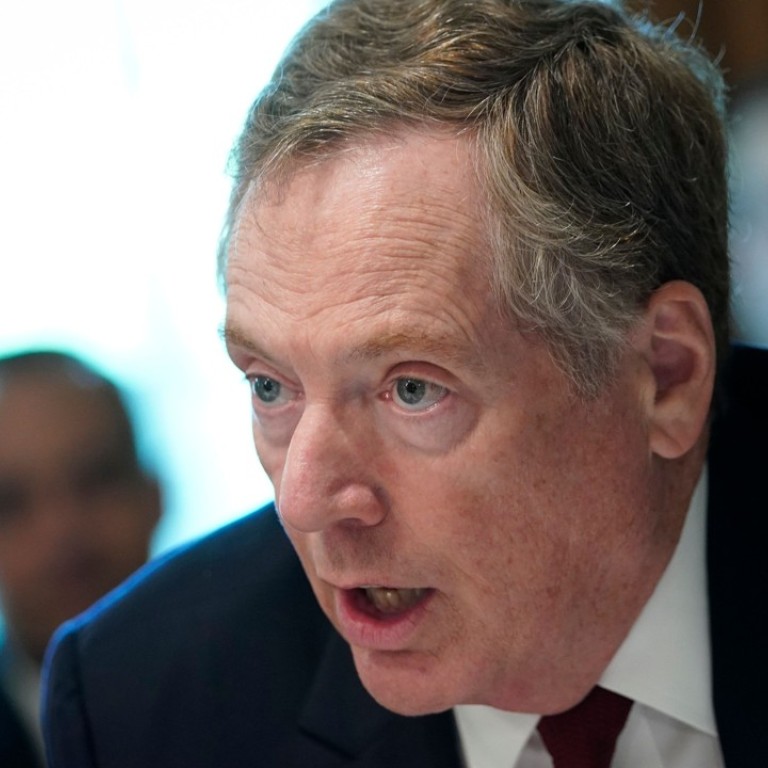
Lighthizer: China has not corrected actions that led to tariffs
- In a report from Robert Lighthizer’s office, the US trade representative says China hasn’t changed ‘its unfair, unreasonable, and market-distorting practices’
- The announcement comes 10 days before an expected G20 meeting between US President Donald Trump and Chinese President Xi Jinping
China has not changed unfair and discriminatory practices that prompted US President Donald Trump to impose tariffs on around US$250 billion worth of Chinese goods, Trade Representative Robert Lighthizer said on Tuesday.
The trade chief made the statement in conjunction with a 53-page update his office released on a report on its investigation into China's intellectual property practices under Section 301 of the 1974 Trade Act. That probe and the initial report from March provided the legal basis for Trump to impose tariffs on nearly half of all imports from China.
“We completed this update as part of this administration’s strengthened monitoring and enforcement effort,” Lighthizer said in a statement.
“This update shows that China has not fundamentally altered its unfair, unreasonable, and market-distorting practices that were the subject of the March 2018 report on our Section 301 investigation.”
The announcement comes 10 days before a meeting between Trump and Chinese President Xi Jinping at the G20 summit in Buenos Aires that could set the stage for a pause in the trade conflict or a further escalation. Lighthizer's statement indicates that China has done little over the past eight months to address the concerns laid out in its original report.
In an interview Tuesday on Fox Business News, chief White House economic adviser Larry Kudlow sent conflicting signals of the chance for progress in Buenos Aires.
“As we move toward the G20 meeting, communications, very detailed communications are occurring at all levels of government,” Kudlow said. “I think that’s a much better place than where we were two, three, four weeks ago and I think President Trump restarted that.”
However, Kudlow also stressed Trump’s view that any deal must be in America’s interest, which means China has to address US concerns about intellectual property theft, ownership restrictions, tariff and non-tariff barriers, forced technology transfers and the enforceability of any agreement that is reached.
That will be tough to accomplish in the next week and a half, especially because Chinese officials have indicated there are some US demands they are unable to meet because of national security concerns. Most analysts think the two sides, at best, could agree to a framework for future talks.

